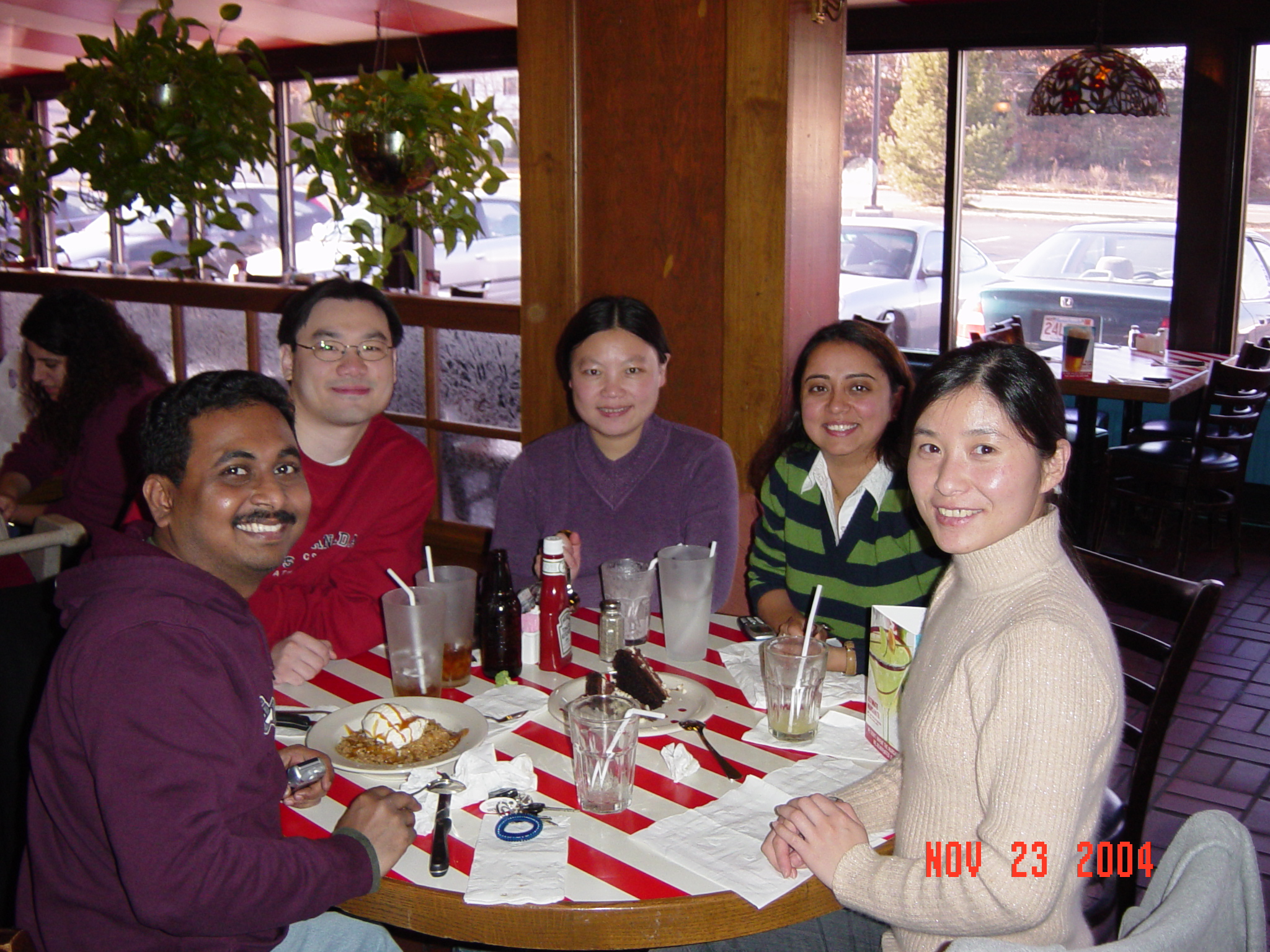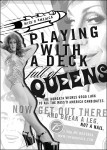
Not to stereotype, but this table had the highest GPA in the bar Not to stereotype, but this table had the highest GPA in the bar
There’s a difference between performing a spectacular act, and doing a job effectively. Yet in advertising, like almost everywhere else in the real world, the latter is indisputably more valuable. Here’s the early favorite for the most effective campaign of the year.
Wait. You’re praising a retail ad for a chain of casual-dining watering holes?
Where’s the ripoff of allegorical reference to George Orwell – the individual reclaiming authority from the totalitarian leadership? Whither the understated font, minimalist music, small logo and patent appeal to my sense of frugality? What, no Hall of Fame football player feeling and returning the love from a tousle-haired youth?
This commercial doesn’t even contain a catchphrase. It’s laughable to consider the spot anything but workmanlike.
“Workmanlike” is about the highest compliment you can pay an ad, at least at McFarlane Media.
The purpose of the T.G.I. Friday’s spots isn’t to win awards, to get America’s break rooms abuzz, nor even to make the cover of AdAge. It’s to sell parmesan-crusted chicken and half-rack baby back ribs. A campaign’s function should never be to indulge the creative team’s masturbatory fantasies about what constitutes remarkable advertising. A campaign should exist solely – and this is so obvious that it’s easy to overthink and miss – to help the client sell his wares. Nothing could be simpler to execute, yet harder for writers and art directors confident of their own brilliance to deign to do.
With this campaign, agency McCann-Erickson does just about everything right. The writer of this spot, to the extent that it required writing, likely won’t make it a permanent part of his reel. The spot doesn’t contain any clever wordplay, any inspiring language to lead men into battle, nor even a simple joke. Here’s what it does have:
A likable pitchman. Maybe a boisterous, husky guy with contemporary facial hair and the scalp to match doesn’t fit your definition of “likable”, but talent Guy Fieri’s enthusiasm and easygoing demeanor are both palpable and infectious.
Fieri got famous in 2006 as a television contest winner. By that time, seemingly every sitcom and drama on TV had been replaced by shows in which non-actors compete for a prize – e.g. eating bugs to win $1 million, being publicly criticized to secure a recording contract, or being publicly criticized for the right to work the 3 a.m. shift in a suit & tie and sit next to Chris McKendry’s subcutaneous disdain for the male half of the species in bucolic Bristol, Connecticut.
By 2006 this curious phenomenon of the proletariat as TV stars (or at least, TV star prospects) had trickled down from CBS and Fox all the way to The Food Network. Fieri competed on a show* on which aspiring chefs sought to demonstrate sufficient culinary prowess and charisma to host a new TV series. It’s hard to imagine a more suitable résumé for a restaurant pitchman – an everyday guy with a penchant for creating food and a presence not so pretty that viewers find him intimidating.
Volume. Clearing your throat and speaking up works in social settings, and it continues to work in the quasi-social milieu of a living room wall. Colorful photography, uptempo music, and a concise message told once in exactly the time allotted work to command the viewer’s attention and leave a lasting stamp.
Reverberation. T.G.I. Friday’s took its restaurants’ distinctive red-and-white color scheme and plastered it to the spots. After just one or two viewings, the visual resonance is unmistakable. There’s little danger of the viewer having the worst reaction possible – mistaking the spot for something from Chili’s or Applebee’s.
A price. If after 27 seconds of the spot, the viewer was only somewhat motivated to visit T.G.I. Friday’s, the “$8.99” can turn lukewarm interest into the hot action of gathering the kids and driving to the restaurant.
This obviously doesn’t work for every product. Breitling didn’t make its watches into status symbols by telling buyers that the new Navitimer is “priced to move at $5,000!” But a T.G.I. Friday’s entrée, even in a proto-recession, isn’t a luxury item. It’s in competition with the minimal financial outlay and slightly less minimal preparation that goes into a homemade meal. T.G.I. Friday’s target is a person who could theoretically pay an 8-minute visit to her microwave (pausing halfway through to peel back the plastic film, stir, then return the film to its original position, after having first poked the film with a fork.) For a few bucks more, she can let a line cook do the work, meet up with a friend or two, let an unseen employee do the dishes, maybe even throw down an appetizer and a cocktail. (Most people don’t have Jack Daniel’s® sampler plates and ready-made lime margaritas at home, regrettably.)
Even if it fit with their marketing schedule, T.G.I. Friday’s likely wouldn’t have chosen the Super Bowl to debut this spot. It’d get laughed out of any award show. Yet the gestalt here fulfills the one requirement of effective advertising. In fact, if there’s a Fundamental Theorem of Advertising, it’s this:
“People don’t want soap. They want clean hands.”**
The benefit supersedes the product. In the example of Breitling, the benefit is materialism: the satisfaction of displaying to the world that you can spend the equivalent of a couple semesters of state-school education on a trinket that tells the time no better than your cell phone does.
In the case of T.G.I. Friday’s, if you buy, you’re getting
-a full belly, like the company’s well-fed gourmand spokesman enjoys;
-enthralled taste buds, should the food be as appetizing as it appears;
-camaraderie, like that the spot’s happy secondary players seem to be enjoying.
Almost all car spots and beer spots are forgettable. Financial services, telephone directories (the definitive down-and-going industry), pills that ease urination – often the only distinguishing trait of these products’ commercials is their relentless sameness.
Meanwhile, one of T.G.I. Friday’s slogans is “Everything you want, nothing you don’t,” making the company one of the few whose advertising shares a philosophy with its core business.
*Spending a few seconds researching and bringing you the titles of these shows would defeat the purpose of demonstrating what resounds in the critical brain and what’s ignored.
**Believed to have originated with Luke Sullivan. Yes, it took 4 whole posts for this blog to crib from the finest copywriting maven of the day.



